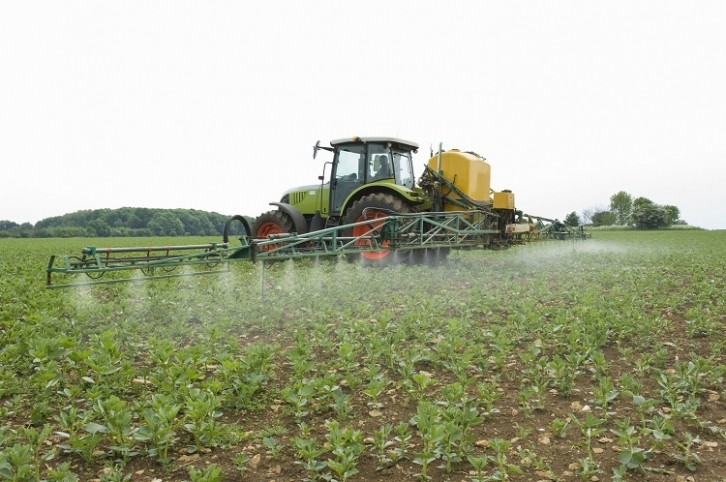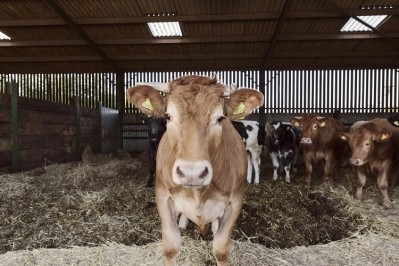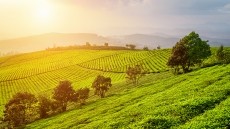Fight for agricultural reform intensifies as Commission caves on pesticide bill

The European Commission has seemingly admitted defeat in its fight to cut the use of pesticides in farms across Europe. The bill, which aimed to cut pesticide use by 50% by the end of the decade, proved highly contentious, with farmers claiming it would impact crop production and environmentalists saying it didn’t go far enough.
The decision to abandon the proposal, which also included a ban on the use of pesticides in parks, schools and sports fields, comes in the wake of weeks of protests by farmers across Europe, during which roads and ports were blocked.
Speaking to the European Parliament earlier this week, the head of the European Commission, Ursula von der Leyen, said the proposed plans had become a “symbol of polarisation”.
Food watchdog, Foodwatch, has hit back at the decision saying, “Citizens, policymakers and organisations have fought hard for tightened European legislation on pesticides for a long time." They went on to say the announcement signalled a, "block to any sustainable progress.”
The reversal of these plans is still to be formally approved, however it's unwelcome news for those in favour of stricter regulations on pesticide use. It directly follows the EU’s decision to delay rules forcing farmers to leave parts of their land fallow in order to allow the soil to recover and nutrient stores to be restored.
Why do environmentalists want to cut pesticide use in agriculture?
The EU’s plans to halve the use of pesticides by 2030 was first announced as part of the Green Deal, which is aimed at tackling climate change. Specifically, it sought to create sustainable use of pesticides. This decision is a blow for environmentalists who have been campaigning for tighter restrictions on chemical use in agriculture for decades. It also calls into question the Commission’s dedication to the Green Deal and its ability to endure in the face of economic instability and a growing population.
“We are deeply disappointed by the European Commission's decision to withdraw the reduction plan for pesticides in agriculture. The primary reason for the bill coming into fruition was to reduce the use of chemicals in the production of our food, as well as reducing chemicals in the air we breathe,” said Foodwatch.
The toxic effects of chemical pesticides on humans can result in short-term health effects such as stinging eyes, rashes and blisters as well as chronic adverse effects such as the development of benign or malignant tumors, and blood and nerve disorders.
Pesticide use can also affect wildlife both directly through application to crops and indirectly through pesticide drift and runoff into local water sources. Larger animals are also at risk through consumption of plants or prey, which have been exposed to pesticides.
"Our farmers deserve to be listened to"
Why have plans to cut pesticide use in agriculture been dropped by the EU?
Despite strong support for the bill, farmers strongly contested the plans, arguing that reducing the amount of pesticides they are allowed to use will negatively impact their crops, putting food production at risk. The proposal had already been met with fierce resistance when it was rejected by the European Parliament back in November 2023.
"Our farmers deserve to be listened to," said Ms Von der Leyen. "I know that they are worried about the future of agriculture and their future as farmers."
Many have argued that the way in which the bill was approached was the reason for its failure, believing it to be poorly supported, funded and with few alternatives offered to the farmers affected.
“Chemicals are a double-edged sword. On the one hand, they maintain crop yields, and on the other, they are a major source of pollution. The balance in the rise of cheaper imported products at lower environmental standards than those of the EU means the price margin is eroded. The impact won't improve the environment, nor will it harm more than it already has. The proper debate is about the environmental cost of imports and associated emissions. The food framework must be joined up with economics, agriculture, and sustainability,” Mark Lumsdon-Taylor, a partner at business strategy firm MHA and chair of the Rural Policy Group told FoodNavigator.
“The road to a more sustainable future is inextricably linked to finance, economics and people. The EU ambition is laudable in light of the Fit for 55 pledges and its ESG agenda, however the pace and participation in this instance failed. The motivation is a mix of politics, misrepresentation of facts, and the challenge of 'inconsistent data'. The joined-up agriculture, food, and farming approach was not visible in this instance.”
In response to the abandonment of the bill, Foodwatch said they, “support the farmers and understand that they feel they are in a pinch with stricter pesticide legislation. But continuing to use pesticides is not a solution, it is actually a danger to public health and nature. It is important for our food security to reduce the use of pesticides. The longer we wait, the more problems we cause.”
"Chemicals are a double-edged sword. On the one hand, they maintain crop yields, and on the other, they are a major source of pollution."
The fight to cut pesticide use in the EU is far from over
Despite this week’s announcement, the matter is far from closed for campaigners fighting in favour of the restrictions to pesticide use.
“The problems in agriculture must be taken seriously based on scientific research rather than emotion. The stranglehold that Brussels finds itself in will only increase after the upcoming European elections in June.” said Foodwatch. “We must now stand firmly behind food security, public health and nature.”
Ms Von der Leyen seemed to support this assessment, saying that the issue of pesticide use had not gone away and that further conversations would be needed before a new proposal to reduce them can be put forward.

























